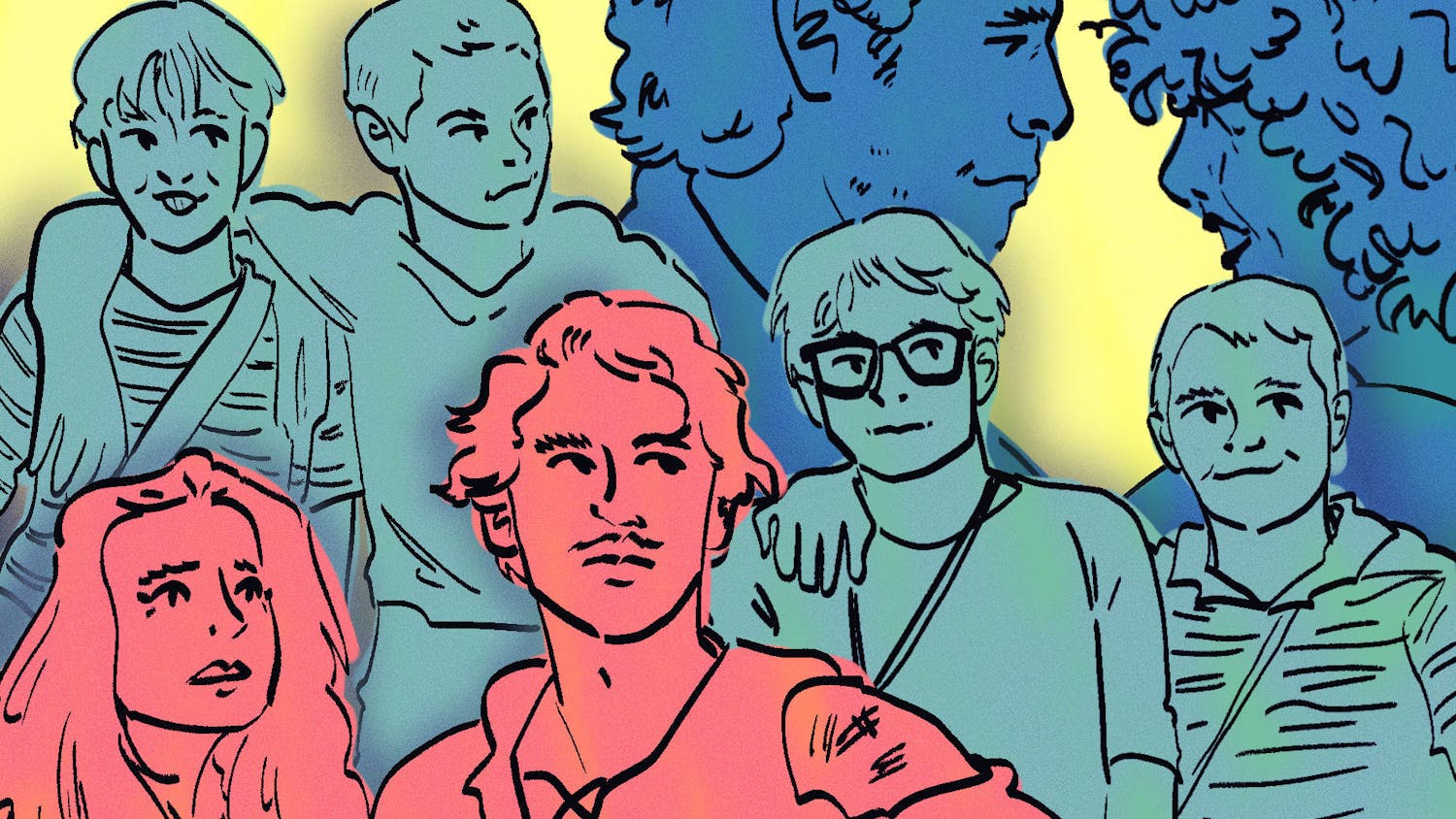How central are words to telling a narrative? That is the question that the Dartmouth Symphony Orchestra will explore through the work of Verdi, Mozart and Tchaikovsky in its upcoming concert on Saturday.
The Dartmouth Symphony Orchestra’s guest conductor Filippo Ciabatti said that all three pieces, despite their differences, express wider ideas of narratives without a story. He said that each of the pieces are distinct — an overture, shorter symphony and full-length symphony,.
Violinist and orchestra manager Alice Wang ’16 said that unlike other concerts that the orchestra has played, such as Hector Berlioz’s “Symphonie Fantastique” in spring 2014, the three pieces had more of a narrative.
“There are glimpses of scenes,” she said. “It’s not a whole story, but there are suggestions and previews.”
The concert will begin with the overture to Giuseppe Verdi’s opera “Nabucco” (1841). The opera, which was his third, was written shortly after his daughter’s death and helped launch his reputation. One of the opera’s themes became the unofficial anthem of the early Italian republic.
Ciabatti said that the Verdi overture represents one aspect of the story by creating a sense of summary.
“The overture is a mix and represents what is to come,” he said. “It’s a way to tell the audience what they will hear, themes of what will be there.”
Saturday’s second piece will be Wolfgang Amadeus Mozart’s “Symphony No. 34 in C Major, K.338” (1780), which he wrote after being removed from the position of concertmaster from his hometown of Salzburg, Austria. The symphony is famous for the way Mozart pokes fun at Austria’s more conservative and militaristic style of music, as well as the way it foreshadows his love for opera.
Ciabatti said that while Mozart did not usually write explicitly for the theater, his symphony had a strong theatrical component to it.
“All of the themes are intense,” he said. “He is a master of melody and theatrical music.”
Wang said that she enjoys playing the Mozart piece because off how exposed he makes the emotions in it feel.
“In the Mozart, each new bar is a new revelation,” Wang said. “There is a constant shifting of emotions. It is very effervescent, but there are moments of great intimacy.”
The concert’s final piece Pyotr Ilyich Tchaikovsky’s “Symphony No. 4 in F minor, Op. 36” (1878) is the most famous for its “Fate Motif,” made up of a mix of brass and wind instruments. While the symphony was initially criticized for being too ballet-like when it premiered, it is now widely performed and praised for his handling of romanticism.
Ciabatti said that the Tchaikovsky piece creates the sense of a larger emotional journey and is the least programmatic of the pieces in Saturday’s concert.
“It’s associated with fate, and the motif is his way of saying that man can never be happy,” he said. “It’s a journey of pain and melancholy.”
Eleni Mora ’18, who plays the viola in the symphony orchestra, said that while this concert was the first one where she has loved all the of the pieces, her personal favorite was the third movement in the Tchaikovsky symphony because of the role the viola plays in it.
“The viola gets a really interesting middle part,” she said. “It’s usually a key background aspect, but in the third movement, we get a fun part.”
Wang said that she also joined the Tchaikovsky symphony because of how engaging the piece was. She said it was not uncommon to leave rehearsal and hear members of the orchestra whistling sections.
Ciabatti said it is hard for him to say which of the three pieces is his favorite because all three artists have played an important role in his musical development.
“They all have a special place in my heart,” he said. “Verdi is an Italian like me. Opera is a very Italian tradition of music. Mozart, I started my career as a pianist playing Mozart. I could never live without Mozart. Tchaikovsky, well, it’s the biggest piece, the most challenging. He’s one of those composers who just speaks to the modern man.”
Before coming to the College, Ciabatti worked as the assistant conductor for Opera North in New Hampshire and has worked with the Florence Opera Academy, University of Illinois Symphony Orchestra and the Universidad Central Symphony Orchestra in Bogota, Colombia.
Mora said that while she misses former conductor Anthony Princiotti and adjusting to a new conductor took time, she has enjoyed the chance to work with Ciabatti.
“He’s passionate and young and dedicated,” he said. “He records all of our rehearsals and then gives us notes based on that, and we’re so happy to have the chance to work with him.”
Wang agreed that it took time for the orchestra to adjust to Ciabatti as a conductor, especially early in the fall when there was an influx of new musicians.
The concert will also include a pre-performance talk given by Ciabatti at 7 p.m. on Saturday. The talk will be given in Faulkner Recital Hall and will be free.
The concert will be on Saturday at 8 p.m. in Spaulding Audiotorium. Tickets will be $5 for students and will be $10 to $15 for community members.



